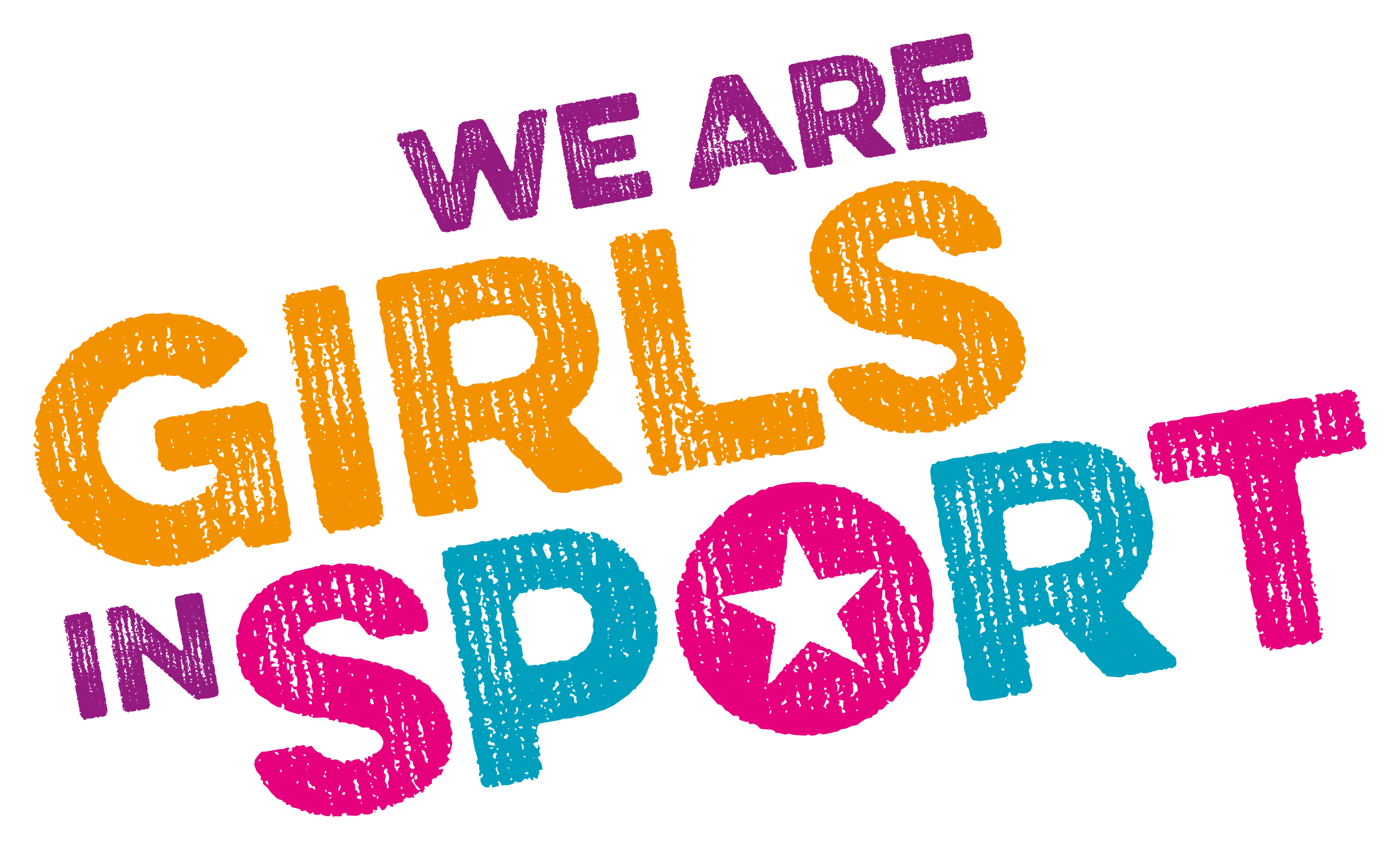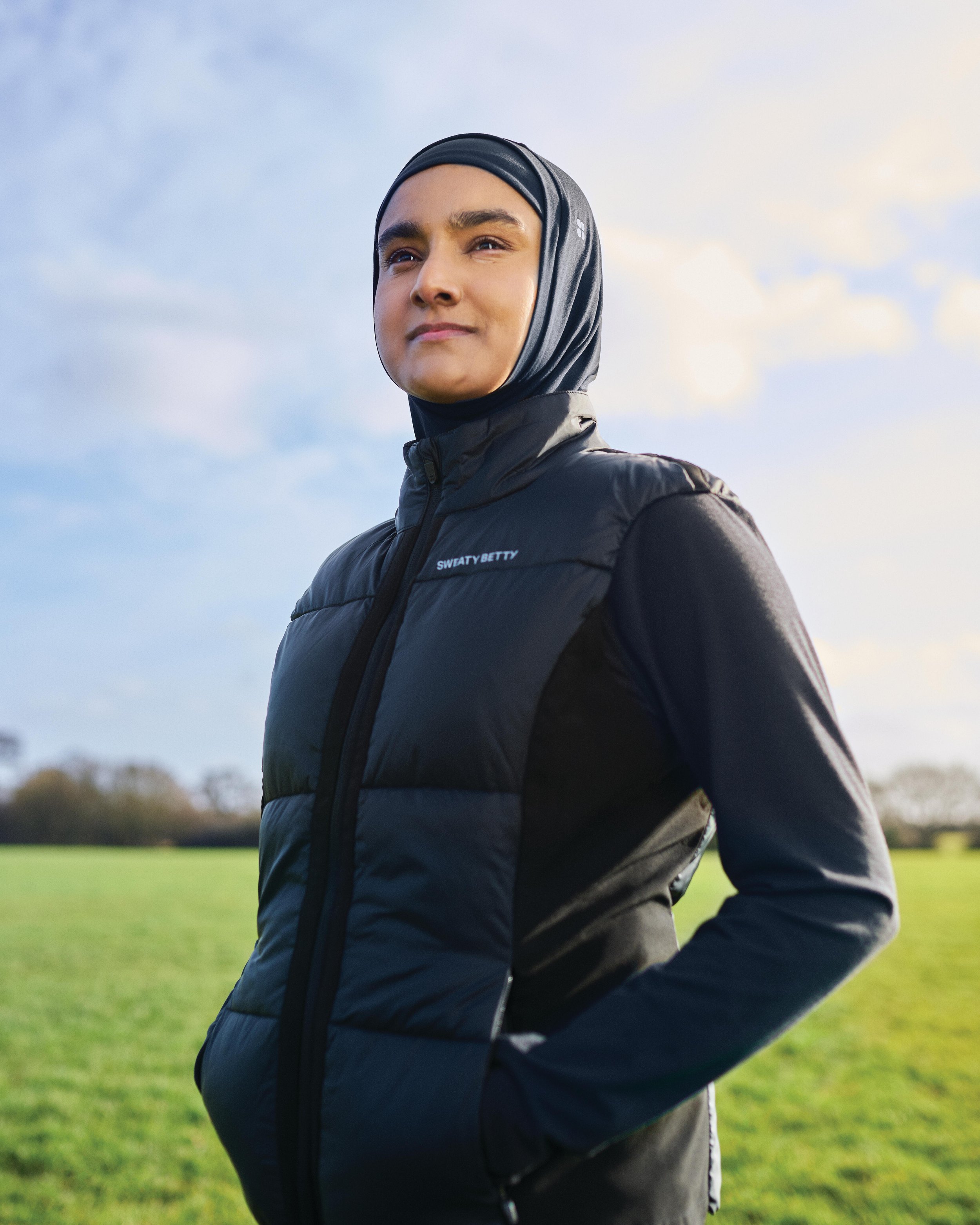Lipa Nessa - the name behind Sweaty Betty's new hijab, launched today!
It’s International Women’s Day and we have the perfect interview and initiative for this year’s campaign message of ‘Inspiring Inclusion.’
Muslim activist Lipa Nessa was attending a Youth Sport Trust dinner back in 2022, when she got chatting to the head of The Sweaty Betty Foundation, the charitable arm of the well-known women’s sportswear brand. Lipa was laughing at the name ‘Sweaty Betty’ as in Bangladeshi ‘betty’ means ‘lady’ and recounting how she’d tried lots of different brands’ sports hijabs but they’d all made her look like an egg or a medieval knight. “They did not flatter me, they did not empower me and I hate them,” she said. After explaining the features of Asian face structure, Lipa proposed designing a sports hijab which actually suits the wearers. And that conversation led to the launch that’s happening today.
This IWD, Sweaty Betty is launching its sports hijab, a collaboration between the foundation, Lipa and a group of girls from This Girl Can in Leeds. The girls & Lipa tried on lots of different hijabs in a safe space, pointing out what they liked and didn’t like, and ultimately designed what you can buy online and in stores from today.
Sports hijabs have been around for a while, but this design is monumental thanks to the wearer design process. The Sweaty Betty sports hijab is made from sweat-wicking fabric (the same fabric used on some of the brand’s leggings) and has:
• Face flattering double layer at the front.
• Stitching running down either side of the crown of the head to accommodate larger hair styles and bigger heads.
• Strap for a bun which is for when you’re really active – Lipa calls it ‘sport mode’ which we love! When you’re relaxing, it just goes around your chin.
• Layering around the neck which allows for ventilation and movement when active.
• Popper fastenings to streamline your head scarf or change up your look should you want!
At the moment, they come in black but in the future, there may be more colours.
This sports hijab is a perfect example of inspiring inclusion. It’s equipping Muslim girls with the kit they need to be able to perform at their best and feel comfortable.
The significance of the hijab head scarf
As Lipa explains, the head scarf part of the hijab is a sign that a woman or girl is Muslim, just as a Christian might wear a cross. It’s compulsory for girls and boys to wear them (different styles for boys and girls) from the time they go through puberty but as Lipa acknowledges, girls and women seem to attract more (negative) attention for wearing theirs. Lipa’s parents didn’t make her wear one straightaway: they allowed her to do her own research, ask questions, educate herself before committing to the head scarf. “It’s about modesty and being comfortable in your own skin. It’s about being empowered.”
Discrimination against the hijab
Discrimination in sport happens for many reasons and Lipa has been a victim too due to her hijab. She remembers that older, male non-Muslim football coaches struggled with her head scarf and even blamed it for her missing header goal opportunities. At another team, however, a university student male coach was completely different – accepting and allowing Lipa to be herself in the team.
Lipa recounts a visit to a school in Bethnal Green, east London. Bethnal Green has a large Bangladeshi population but the girls at the school explained that they’d been told to remove their hijabs before PE lessons. Lipa’s jaw had dropped open at this news: she felt saddened for the girls and angry at the school for its oppressive ways. The school said it was for health and safety reasons but Lipa believes that there were other options, least of all giving the girls a choice. “Every girl deserves a choice.”
Lipa’s love of football
Lipa started playing football as a little girl after receiving a ball branded with characters from the ‘Tweenies’ cartoon. That ball alongside other sporty and active characters from children’s TV (Josie Jump from ‘Ballamory’ and Sportacus from ‘Lazy Town’ – remember them?) and sport frequently on TV at home was Lipa’s inspiration to be active and play football.
Her male cousins were her footy teammates when they gathered for Eid and at school, she played football with the boys, identifying at an early age that boys were more active than girls. Teachers suggested she play with a hula hoop or skipping rope over a football but the rebellious activist responded and she brought in her own football instead.
Lipa faced cultural barriers alongside the usual barriers that many girls face. Her extended family would query why she wanted to be playing outside, running around and shouldn’t she be behaving more modestly? Lipa’s response? “I don’t care. I don’t want to be like you when I grow up.”
At her super-sporty (lacrosse, Aussie Rules football anyone?) middle school there wasn’t a girls’ football team and so she made one happen. At high school, despite not feeling comfortable playing with ‘the lads’ anymore, her talent was identified during a PE lesson: PE teachers were amazed at her natural ability and encouraged her to find a club. She signed a semi-professional contract aged 15 and her sporting career as a player and activist began.
Lipa Nessa’s activism
Throughout her life, Lipa has been challenging norms and her activism looks set to continue. She credits allyship with helping her bring about change and acknowledges the strong allyship towards Muslim women that Sweaty Betty is demonstrating through the creation of this hijab. “It’s disruptive resilience.”
Lipa is truly inspiring to speak to and when we talk about what she would like to see for Muslim girls and women, she talks about representation: representation at FIFA, the Olympic Committee and non-sporting specific organisations like the UN.
“I want people who look like me to be in those rooms. A white man or a white woman can not represent Muslim women as they don’t have the lived experiences, the same emotional connections. Get us in those rooms,” she says.
“And will that be you. Do you want to be in those rooms?”
“100% - younger me always wanted to better the sporting environment for herself and she didn’t have the means, resources, the knowledge to do that. But as I’m growing in this space, I feel as though I do have those skills and I can influence, I can express my opinions and I should be welcome at those tables. And, if I don’t, I’ll build my own table and invite others to join me – it’s possible.”
And we really believe it is. Lipa is fun and chatty, a young woman of integrity and a fantastic role model. There is always work to be done when it comes to inclusion but this hijab is a positive step – and we have Lipa Nessa to thank for that.
Proceeds from each hijab purchase will go towards the Foundation in their efforts to help all women and girls become more active.
All images credit Sweaty Betty.


